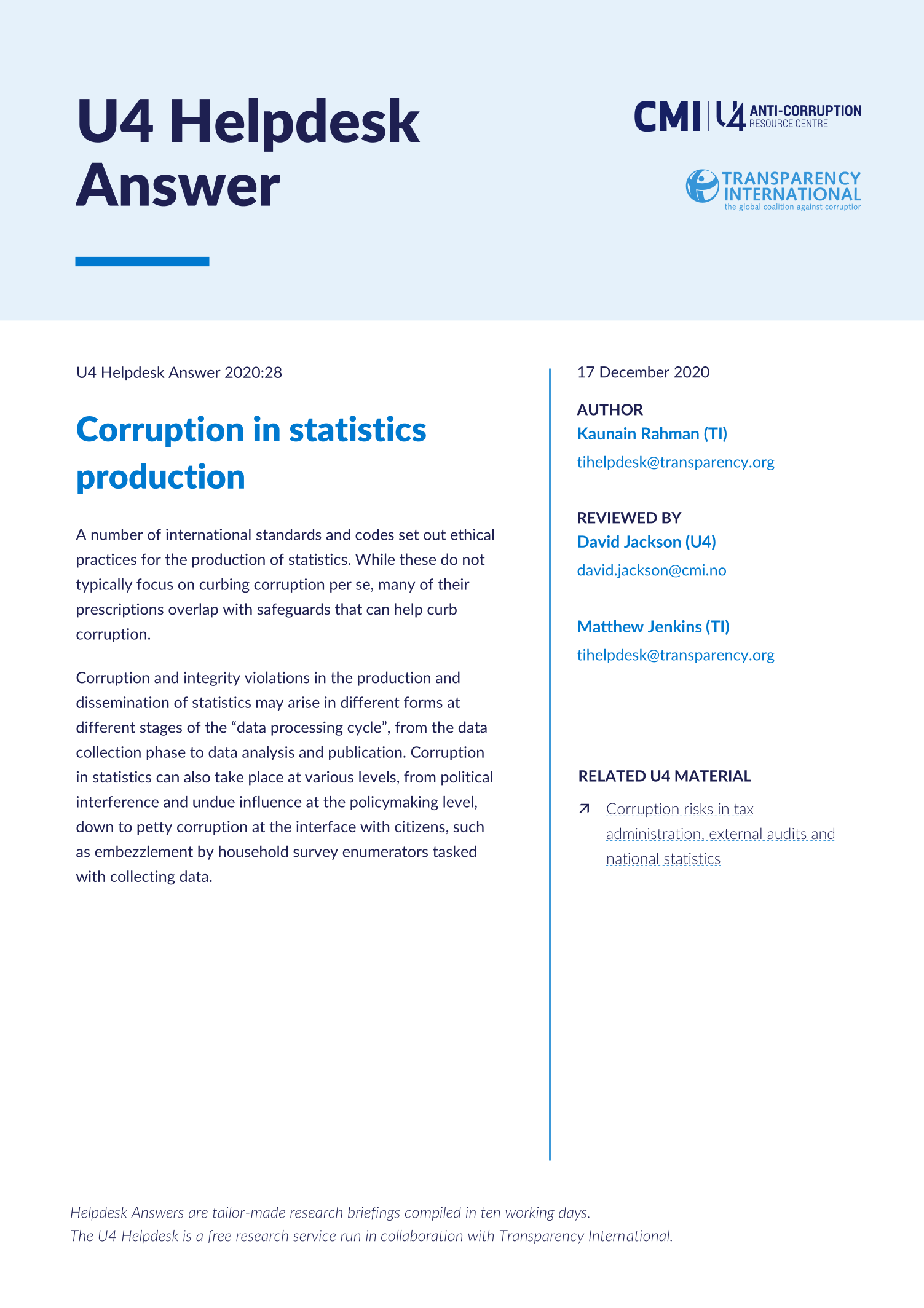Main points
- While not specifically designed to tackle corruption, international standards intended to promote professionalism and high quality statistical outputs contain prescriptive provisions that can help promote integrity and minimise the risk of corruption in the production of statistics.
- Specific corruption risks may occur at different points of the data processing cycle. For example, bribery and bid rigging in procurement could be a risk at the data collection stage when the task is outsourced.
- A central concern for both the validity and integrity of statistical work is curbing political interference.
- Certain types of data may be particularly susceptible to corrupt manipulation, including macroeconomic, government performance and trade data.
